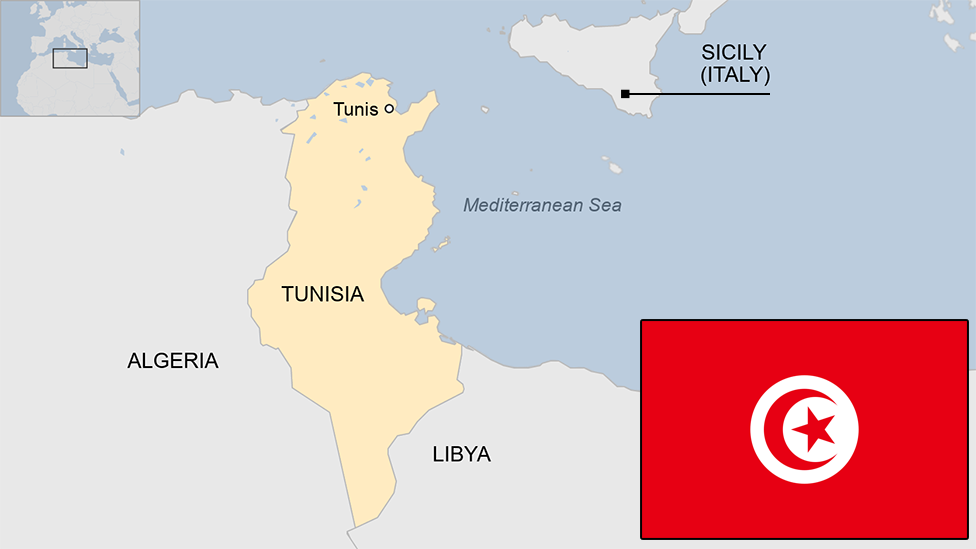Ben Ali: Tunisia's ousted ex-president dies in exile aged 83
- Published
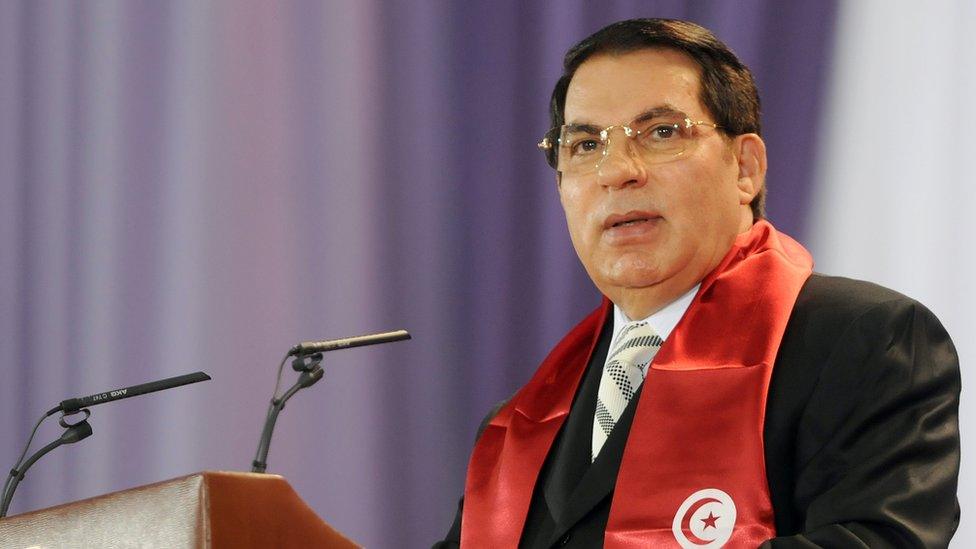
Tunisia's former president was forced from office in 2011 amid mass street protests against his rule
Tunisia's former President Zine al-Abidine Ben Ali has died in exile aged 83, his family says.
Ben Ali led the country for 23 years and was credited with delivering stability and some economic prosperity.
But he received widespread criticism for suppressing political freedoms and for widespread corruption.
In 2011, he was forced from office following mass street protests. This triggered a wave of similar uprisings across the Arab world.
At least half a dozen countries in the region saw their president fall or conflicts break out in the wake of the former Tunisian leader's downfall, in what became known as the Arab Spring.
Ben Ali fled to Saudi Arabia when he left office and was living there when he died on Thursday.
His funeral will take place on Friday in Saudi Arabia, his lawyer told Reuters news agency.


Obsessive control was his undoing
Analysis by Richard Hamilton, BBC News
Tunisia's autocratic former president brought stability but little freedom to the country.
He came to power in 1987, ousting Habib Bourguiba to become Tunisia's second-ever president. He promised reform, democracy, women's rights and education.
But he failed to deliver a more free and open society.
In a diplomatic cable published by Wikileaks, a US ambassador described how the Ben Ali family was widely viewed as a "quasi-mafia". It spoke of a "nexus of corruption" which bled the country dry.
And while he did bring some economic growth, no-one was really fooled by his three consecutive "99.9%" election victories.
His strict control of society shored up by a vast network of spies, informers and secret police kept Ben Ali in power. But in the end anger against that obsessive control proved to be his undoing.
He acted too slowly to stem the tide of that unexpected popular uprising.

In June 2011, a court in Tunisia sentenced Ben Ali in absentia to 35 years in prison for embezzling public money.
In 2012, he was sentenced to life - also in absentia - over the killing of protesters in the revolution in 2011. A separate court also sentenced him for 20 years for inciting violence and murder.
The lavish palace has displays made from ivory and gold
Ben Ali's death comes just days after Tunisia held the second free presidential election since he was ousted.
It was brought forward after the death in July of the country's first democratically elected president, Beji Caid Essebsi, who took office in 2014.
Related topics
- Published19 September 2019
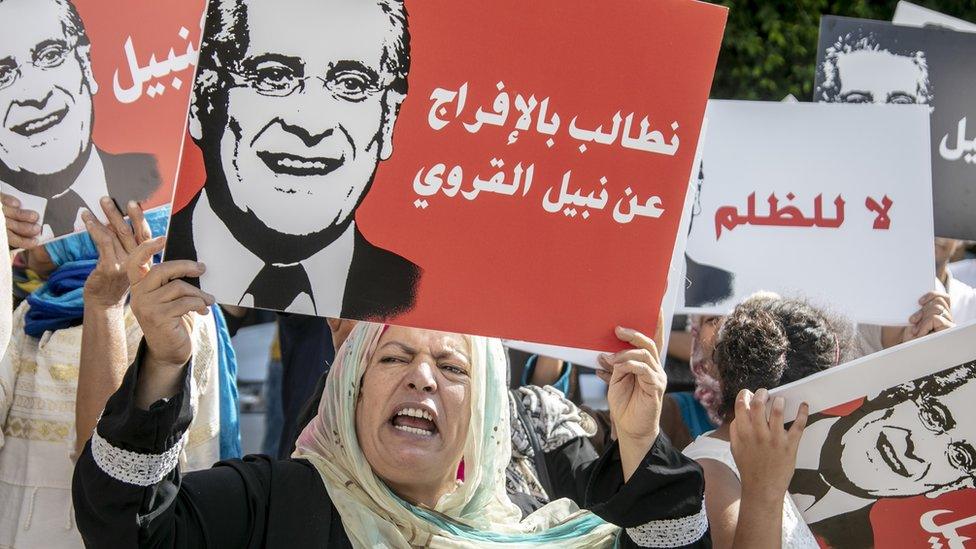
- Published10 December 2012
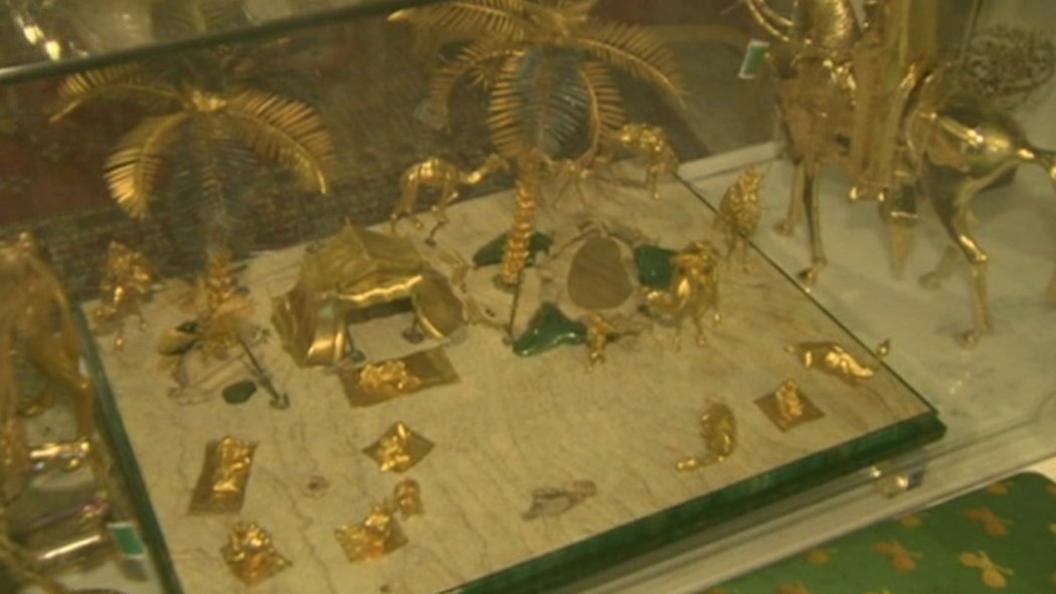
- Published23 December 2012

- Published19 September 2019

- Published25 July 2019
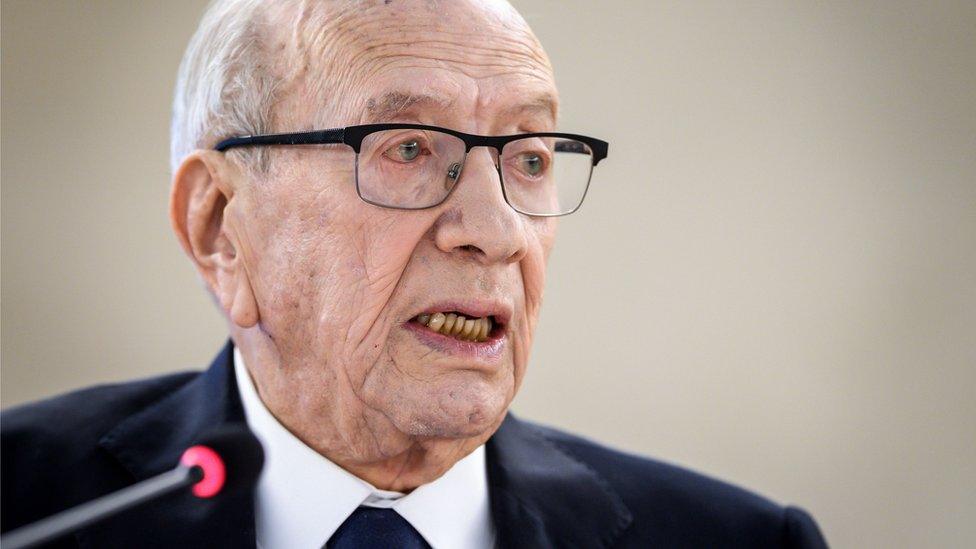
- Published9 October 2024
